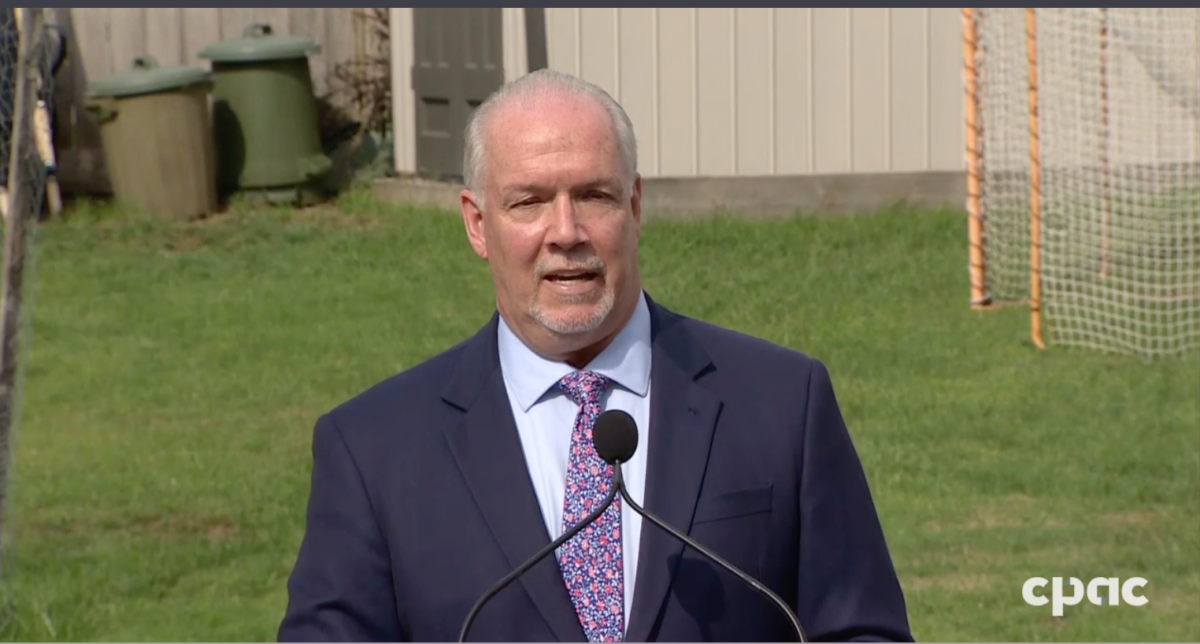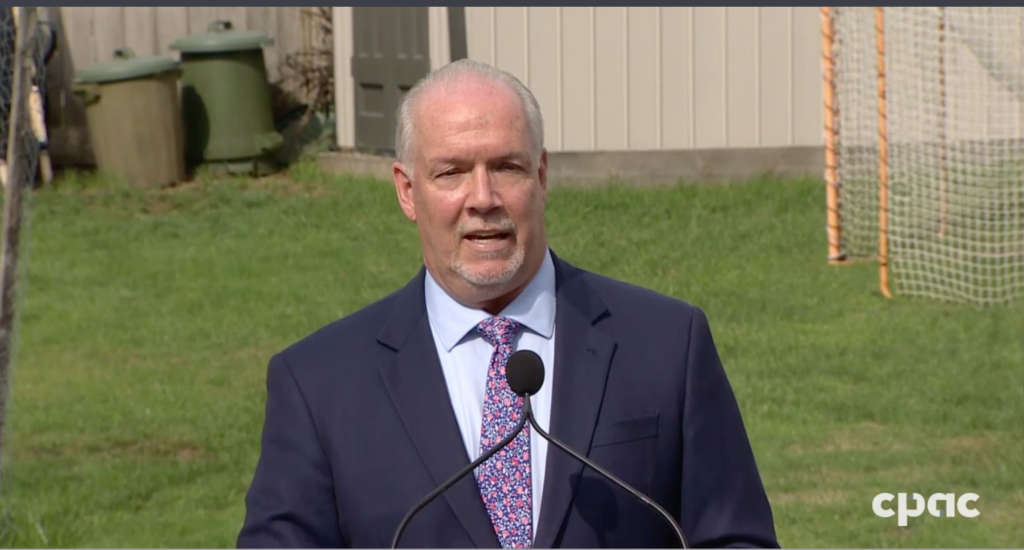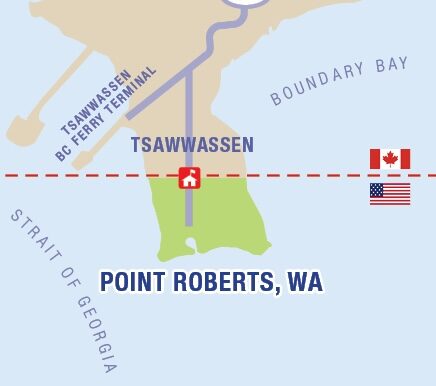
Bob Mackin
A government watchdog says a New Brunswick Court of Appeal decision on Dec. 8 could be useful when it appeals the June ruling that found B.C.’s 2020 snap election didn’t break the province’s Constitution Act.

John Horgan announced the 2020 election in a Langford cul-de-sac (CPAC)
Progressive Conservative Premier Blaine Higgs called an election for Sept. 14, 2020, more than two years early and without a non-confidence vote. The province had held three elections according to a fixed dates law beginning in 2010.
Democracy Watch filed a court application to contest the breach of the law, just as it did in B.C., when then-NDP Premier John Horgan called an election a year early in fall 2020.
A Court of Queen’s Bench judge threw out the New Brunswick challenge in October 2021, but a court of appeal tribunal heard the case in May and September and found errors in the lower court ruling.
“In my respectful view, the judge in first instance erred in dismissing Democracy Watch’s application on the basis of non-justiciability [not triable in court], and I would set aside his ruling on the question,” said the reasons for judgment authored by Justice Ernest Drapeau. “The Premier’s prerogative in respect of dissolution and election advice [under the Legislative Assembly Act] is undoubtedly political to some extent, but its scope and the legality of its exercise are legal questions subject to judicial review.”
The New Brunswick law states that nothing affects the power of the Lieutenant-Governor to prorogue or dissolve the Legislative Assembly at the Lieutenant-Governor’s discretion. It also required the Premier to advise the Lieutenant-Governor to dissolve the assembly and hold a provincial election on the third Monday in October in 2022.
Democracy Watch’s application, however, was dismissed on the grounds that there was no admissible evidence that Higgs’s dissolution and election advice were for “the pursuit of purely partisan electoral advantage.”
The ruling said the Premier is not only honour-bound, but legally bound to provide advice that accords with the schedule for elections, while preserving the Lieutenant-Governor’s “right to derogate from that obligation in certain circumstances.”
Drapeau’s verdict said that the two relevant sections in the law “operate in tandem to foreclose dissolution and election advice purely for partisan electoral advantage.”
“We won on most grounds, including the precedent-setting ruling that, if the evidence shows that a snap election call is only to favour the ruling party’s re-election chances, then it violates the fixed-election date measures,” Conacher said. “The ruling should help in both our B.C. case and the federal case [against the 2021 snap federal election], as we have filed evidence in both cases showing that the snap election calls were only to favour the ruling party’s re-election.”
On June 21, B.C. Supreme Court Justice Geoffrey Gomery ruled that the B.C. Constitution Act is “unambiguous,” because it gives the Lieutenant-Governor power to dissolve the Legislature “when the Lieutenant-Governor sees fit” — despite the fixed election date clause.

Democracy Watch’s Duff Conacher
The BC Liberal government amended the Constitution Act when the party came to power in 2001 and the province held four consecutive elections every four years in May.
Horgan took advantage of a lull between waves of the COVID-19 pandemic and polling favourable to the NDP government to break a confidence and supply agreement with the Green Party on Sept. 21, 2020 in order to seek a majority mandate.
It worked, because the NDP won 57 seats in the Oct. 24, 2020 election.
The B.C. ruling came, coincidentally, the week before Horgan announced he would retire upon the NDP choosing a new leader. The New Brunswick ruling came the day after new Premier David Eby’s cabinet was sworn-in at Government House in Victoria.
After the ceremony, a reporter asked Eby if B.C. voters would again go to the polls early. The former Attorney General said he is committed to the scheduled October 2024 election.
“The reason is quite straightforward,” Eby said. “I was all across the province, I didn’t hear one British Columbian say ‘gosh you know what I really hope happens now is a provincial election.’ They said deal with public safety, they said deal with housing, deal with healthcare, make sure our economy is strong in the face of global headwinds. And that’s what we’re going to do.”
Support theBreaker.news for as low as $2 a month on Patreon. Find out how. Click here.











